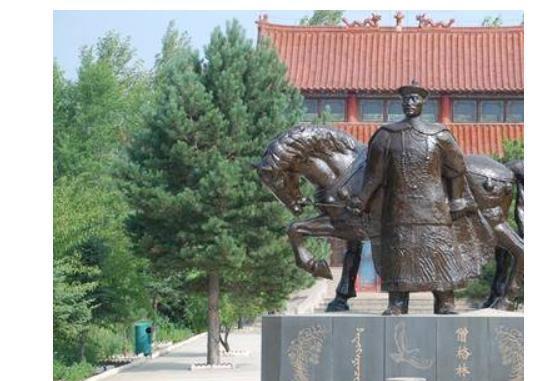In 1860, the Daoguang Emperor had become an ancient emperor, and at this time, twenty years after the First Opium War, the guns of the great powers were still raging on the land of China. The Xianfeng Emperor was deeply involved in internal and external troubles in the face of the madness of the Western powers, and he could only rely on a group of old ministers to seek perfection.
At this time, the Qing Empire was troubled internally and externally, there was the Taiping Rebellion in the south, the Twist Army in the north gradually grew, and the Eight Banners of the Manchu Qing Dynasty were overwhelmed, and could only be suppressed by the local armies formed by local heroes.

At this time, Britain and France gathered a fleet to march directly to The DaguKou in Tianjin, but they did not expect to encounter the stubborn resistance of the Chinese military and civilians and returned miserably, and the news reached Britain and France that caused shocks in the two governments, and in February 1860, the Anglo-French coalition army made a comeback again.
The young Xianfeng Emperor hastily sent the previously victorious Qing general, Senggelinqin, who was a Mongol nobleman of the Borjigit clan, the king of Horqin County, and hereditary. The Northern Expedition of the Taiping Heavenly Kingdom, which shook the Beijing Division, was suppressed under his hands and was the mainstay of the Manchu Qing court.
When the Anglo-French coalition army first invaded Dagukou, it was Senggelinqin who led the army and people to fight heroically and won the first victory against the great powers since the Opium War, but this time due to serious lack of defense, the Qing army failed to defend Dagukou, the Anglo-French coalition army landed in Tanggu, and occupied Tianjin nearby, and Senggelinqin was able to lead the army to retreat and garrison Tianjin and the Beijing Division.
On September 18, 1860, led by the French general Meng Tuoban LinkedIn 4,000 soldiers from Tianjin to the capital, and there was an exchange of fire with the Mongolian iron horse of the monk Greenqin in Zhangjiawan, and the Mongolian iron horse that had helped The Emperor Taiji lay down the Central Plains was vulnerable to foreign guns and artillery, and the Anglo-French coalition army was killed 1 person and 34 wounded in this battle, while the Qing army suffered 1,000 casualties in World War I.
After the loss of Zhangjiawan and Tongxian, the two sides exchanged fire again at the Bali Bridge of the Beijing Division, and the Qing cavalry, in a group of 200 people, released the reins and held sabers and muskets, rushed frantically towards the camp of the British and French allies. However, under the artillery fire of the British and French allies, the suicide charge of the Qing army only delayed the battle, and seeing that the war situation was decided, the monk Greenqin had to withdraw under the escort of many guards, the Bali Bridge was completely trapped in the hands of the enemy, and the gateway to the capital was opened.
After hearing the news, the Xianfeng Emperor rushed to the capital and never returned to the capital, and the Yuanmingyuan of the Garden of Ten Thousand Gardens was destroyed by a fire, becoming a shame for the Chinese nation for a hundred years.
The defeated monk Gelinqin was dismissed from his post by the Xianfeng Emperor, and in 1865, he revived and led the army to suppress the Twist army, and then died in battle at the age of 55.
Ironically, in Paris, France in 1861, Napoleon III, emperor of the Second French Empire, was publicly holding a ceremony for Montoban at the Palace of Versailles. Under the gaze of all the high-ranking officials and nobles of the empire, it was announced that he was officially awarded the title of count, called "Count of Baliqiao"
Hundreds of years later, the things invented by the ancestors defeated the Chinese through the foreigners, and had to be lamented.